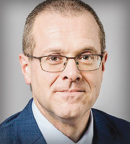Are we winning the war on cancer? It’s not so clear, especially with COVID-19 poised to erase recent gains, panelists said at a session on global cancer control at the 2020 European Cancer Summit, which was sponsored by the European Cancer Organisation.
“We know what we have to do. My question is whether things are getting better or not, worldwide,” said Franco Cavalli, MD, President of the World Oncology Forum. He referenced the consensus of some 100 European cancer experts: “scientifically, we are winning the war, but globally we are losing it.”

Franco Cavalli, MD
In 2012, the World Health Organization (WHO) assembly unanimously agreed to a broad cancer-related goal: by 2025, to reduce deaths from noncommunicable disease by 25%. This would translate into 1.5 million lives saved each year.
“My evaluation is that the situation has actually worsened, and that’s even before the pandemic. Worldwide, the numbers are getting worse,” Dr. Cavalli pointed out.
Pandemic Makes a Bad Situation Worse
The pandemic has led to universal delays in cancer screenings, office visits, even treatments, with the potential for a financial crisis also looming on the horizon. “Even in the richest countries, we know we will see more cancer deaths in the near future because of what has not been done during the pandemic,” he said.
Her Royal Highness Princess Dina Mired of Jordan echoed this concern at the session. Princess Dina is Past President of the Union for International Cancer Control, a global organization with 172 member countries and territories committed to reducing the cancer burden and inequitable access to care worldwide.

Princess Dina Mired
“We all know that cancer does not wait for COVID-19 to end. The cancer community has taken a beating…. Health-care systems have experienced extreme pressures due to the pandemic.... Incredibly, even the most advanced health-care systems in the world have buckled under the double strains of managing the coronavirus and cancer and other diseases,” she said.
Exacting a “tragic and exorbitant human cost,” the pandemic has revealed many “uncomfortable truths” about the global health-care system, she said. Inequities, lack of resources, scarcity of providers, poor accessibility, and so forth have long existed in many places, not just in the time of COVID-19, “and cancer thrives when a system is broken. The situation is grave,” Princess Dina said.
Many Turn a Blind Eye
Dr. Cavalli agreed: “The pandemic has clearly shown that cancer is not the first priority in most health-care systems…. Although policymakers officially say we are working to screen and treat cancer, and we will invest more in cancer care, in reality this is not happening in many parts of the world.”
One reason, he said, is that, in low- to middle-income countries, the focus trends toward communicable diseases rather than cancer. “What’s to be done about cancer is almost never discussed because this leads to discussions of the whole health-care system” and “politically hot” topics such as universal coverage. “But without a functioning health-care system, it is impossible to combat cancer,” he emphasized.
Princess Dina, too, has seen too many eyes averted from the problem. “When we talk about 9.6 million people dying of cancer every year—a burden carried by the poor and disadvantaged within our global community—many world leaders do not bat an eye. Why? The problem of treating cancer in low- to middle-income countries is happening elsewhere and does not reach their shores,” she said.
Again, Princess Dina continued, it took COVID-19 to “equalize the misery experienced by millions of the unfortunate among us and reveal this collective apathy to the very issues that are the daily lot of millions of patients with cancer, particularly in poorer regions but even at times within wealthier ones.”
She asked, what can the global health community do now to counteract the loss of the gains made over the years and put cancer back on top of the agenda? Perhaps, it can apply insights gained from the pandemic and set about “cleaning up our house,” she said, seizing the opportunity “to go back to fundamentals and fix the global fragmented health-care system, to end the divisiveness between diseases and vertical silo systems, to reconfigure health systems to deal with people rather than diseases, and to work toward universal health-care coverage so we don’t leave anyone behind.”
In Dr. Cavalli’s opinion, pressure should be put on policymakers “to deal with the cancer problem.” It may not be enough to advocate. “I would even say we have to become more activist—otherwise, we will continue to lose the war against cancer globally.”
WHO, Pharma Weigh In
Others on the panel offered some examples of better things ahead. Hans Kluge, MD, WHO Regional Director for Europe, said that “tackling deep inequalities is the core of my mandate” and named several courses of action that are part of his vision: ensuring universal health coverage (including early detection), tackling risk factors for cancer, building partnerships, and closing gaps that obstruct efforts toward shared objectives and solidarity.

Hans Kluge, MD

Catherine Owen
Catherine Owen, Senior Vice President of Major Markets for Bristol Myers Squibb, described efforts by the pharmaceutical industry to bring equality to the global cancer population. She cited, as an example, the Innovative Medicines Initiative, the world’s largest public-private partnership that involves the European Federation of Pharmaceutical Industries and Associations and the European Commission. The aim is to remove bottlenecks in the drug development process, but a program within it—the Eden Project—has brought together 22 partners across 12 countries to build a federated data network that ultimately involves 100 million European Union (EU) citizens. Standardized to a common model, this approach to data collection can enable rapid analysis of large data sets in a compliant way, she said.
Such partnerships between pharma and other stakeholders are driving health-care systems toward more efficiency and better allocation of resources and are reducing barriers to prevention, treatment, and care of cancer in low- to middle-income countries. “We believe in the multiple-stakeholder approach of working together to address cancer care in Europe,” Ms. Owen said.
Cervical Cancer Program
Dr. Kluge said he is encouraged to see efforts such as the EU’s Beating Cancer Plan and WHO’s own Global Strategy to Accelerate the Elimination of Cervical Cancer, which just launched in November. The cervical cancer program marks the first time so many countries—194—have committed to eliminating cancer.
Princess Dina, who delivered the keynote address at the formal launch of the program, observed: “The political will is there, but, of course, adopting a strategy is one thing; implementing it is another. We need the global community to sign on to this…and we need to make sure the vaccine will be available, affordable, and accessible…. We also need accessible screening, diagnostics, treatment modalities, and support for scaling up health-care workers.”
“The cervical cancer elimination strategy could be the engine that will help us test and deliver the changes in our health systems, paving the way to efficient health systems for dealing with other cancers too,” she added. “It may also be a litmus test for how we as a global community change how we support global health…, veering away from solo, fragmented actions to more united and strategic ones like partnerships here at this Summit.”
Dr. Kluge phrased the challenge and the goal: “Making use of science, solutions, and solidarity, so we can deliver health and prosperity to people we serve—leaving no country, and no person, behind.”
DISCLOSURE: Catherine Owen is an employee of Bristol Myers Squibb. The other panelists reported no conflicts of interest.

